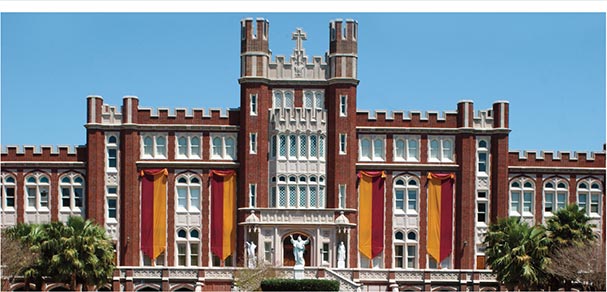Letter: The Maroon sensationalizes issue
Marquette Hall
September 4, 2015
I write in response to Amy Pirtle’s opinion piece, “Loyola can’t progress fast enough” (August 28). Regrettably Ms. Pirtle’s commentary contains errors of fact and interpretation that stand in need of correction, but more than these it is her tone that sadly and unnecessarily undermines the credibility of The Maroon as a venue for serious discussion about Loyola’s values.
Ms. Pirtle both implicitly and explicitly chastises Loyola’s administration for not acting with greater urgency in extending benefits to Loyola faculty and staff in same-sex marriages.
It is true that the Church, in the words of Gaudium et spes, has “the duty of scrutinizing the signs of the times and interpreting them in the light of the Gospel,” and well-meaning people can reasonably argue whether the Church has fulfilled that duty with respect to its teachings on marriage. But Loyola could not have offered these benefits until the Supreme Court, through its decision in Obergefell v. Hodges, compelled the State of Louisiana to recognize same-sex marriages as legally valid.
Whatever one’s opinion on the Church’s current stance toward same-sex marriage, to criticize Loyola in particular for not “progress[ing] fast enough” is unfair. So, too, to characterize the university as suffering from an identity crisis—its “liberal” and “progressive” Jesuit ideals somehow at odds with the restrictive teachings of the Church—is to misunderstand our Jesuit identity. There is no “Jesuit” without “Catholic;” the very values cited emanate from the Gospels and from the substantial body of Catholic Social Teaching that the Church has amassed over time. Jesuit values are by definition Catholic values.
We, in the Office of Mission and Ministry, have an obligation to educate our community about Catholic Social Teaching and the inseparability of our Catholic identity from our Jesuit charism in order to prevent these kinds of misunderstandings.
But there is no journalistic justification for stating that, to commend Loyola for choosing not to protest the Supreme Court’s ruling, would be commensurate with “thanking Putin for not bombing a Ukrainian city or NOPD for actually testing a rape kit.” Sensationalist rhetoric of this kind is offensive on several fronts and does nothing to advance an important conversation about Loyola’s identity and moral commitments.
We all have a responsibility for reflecting critically on our institutional values. But let us do so with the goal of bolstering those values and not merely for the sake of mocking them.
John T. Sebastian, Ph.D.
Vice President for Mission and Ministry







